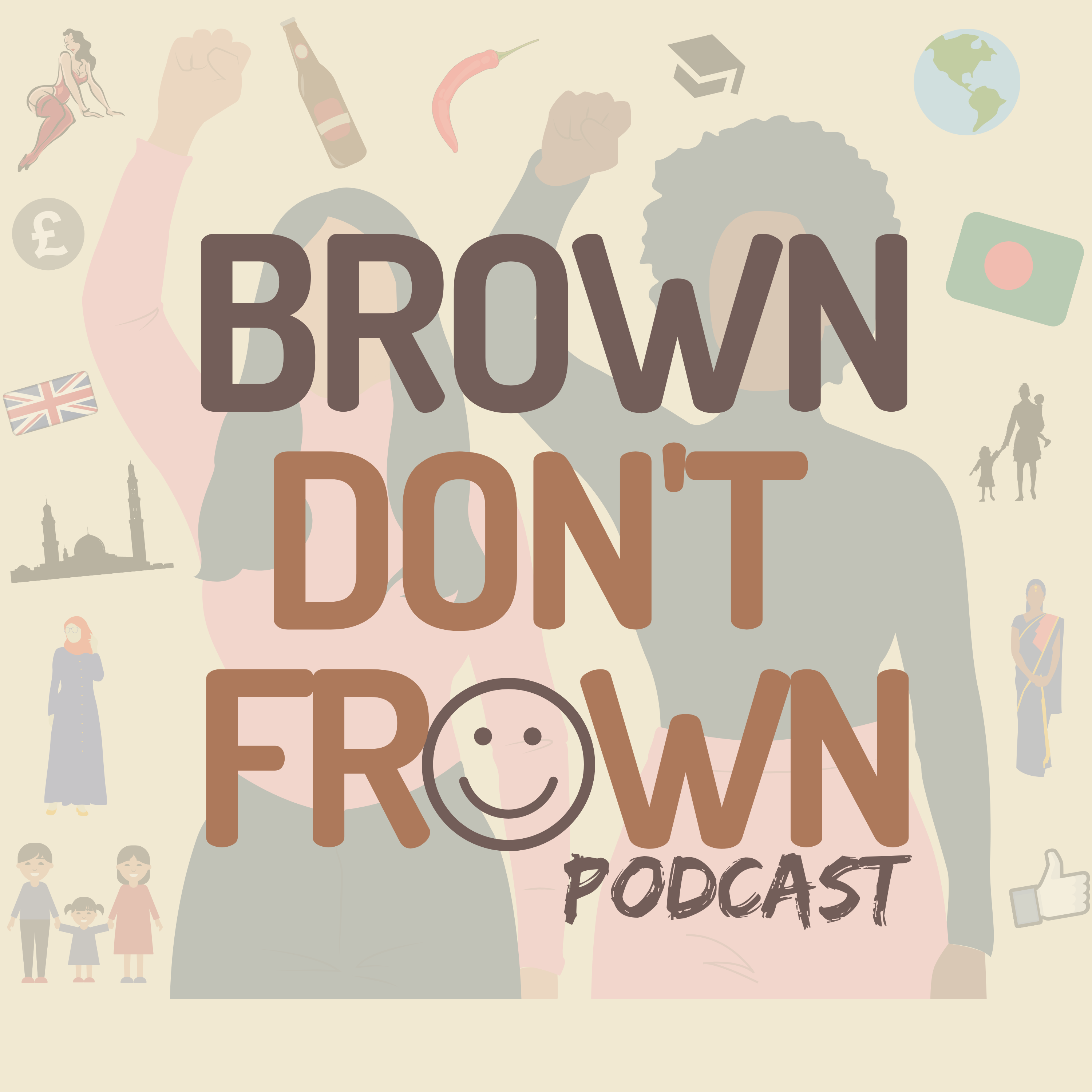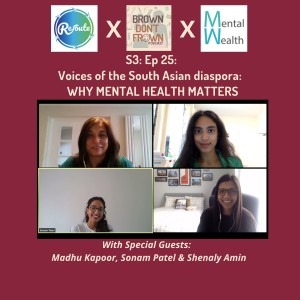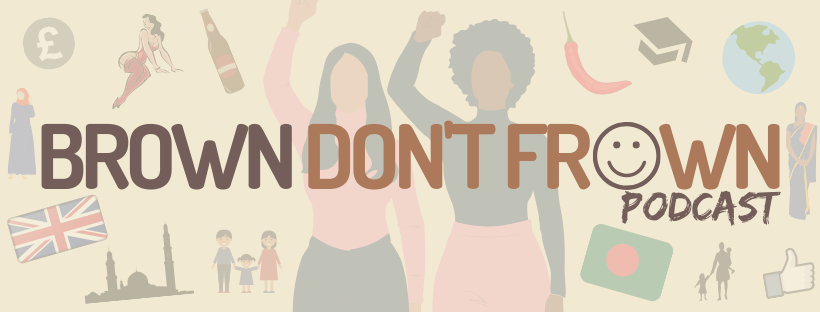
Brown Don't Frown was borne out of a personal journey with womanhood. As a British Bangladeshi, navigating mainstream Feminism often felt exclusionary to me because it didn’t seem to value the experiences or views which shaped my grandmother’s, aunts’, mother’s or friends’ lives. Through this podcast, we seek to build a more inclusive discourse, which breaks down presumptions about different cultures, and shines a positive light on the stories of underrepresented women. Featuring new guest(s) from different walks of life in each episode, Brown Don’t Frown seeks to engage ordinary women and facilitate openness towards entirely new perspectives. It hopes to spark honest and meaningful conversations about intersectional feminist themes in contemporary society with the acknowledgement that our views are shaped by our cultural, racial, religious, social and political experiences. Whether it's discussing society's preconceptions about the Hijab with a British-born Jamaican Muslim woman or examining the impact of gendered expectations on our ability to grieve on our own terms, we hope listeners finish each episode feeling more rounded than they did before. Follow us on: Instagram: https://www.instagram.com/browndontfrownpodcast/ Twitter: https://twitter.com/bdfpodcast?lang=en Facebook: https://www.facebook.com/browndontfrownpodcast LinkedIn: https://www.linkedin.com/company/browndontfrownpodcast
Episodes

Sunday Nov 15, 2020
Sunday Nov 15, 2020
In this candid episode, I am joined by Madhu Kapoor and Shenaly Amin from Mental Wealth, a Mental Health peer support group for South Asians aged 30+, and Sonam Patel of its sister organisation, Reroute, for younger South Asians. We explore Mental Health through the themes of migration, awareness and accessibility, cultural stigma and familial expectations.
South Asian communities are more likely to experience poverty, have fewer educational and work opportunities, and experience language and other communication barriers by virtue of integrational struggles. These social, economic, and cultural struggles can heighten mental health risks. Improving uptake of mental health services by ethnic minorities is a longstanding challenge for public health providers and we look at how health and social policies should factor these variables into their objectives. Reflecting on our personal mental health experiences, we recognise the importance of raising awareness and making mental health services more accessible for our communities.
Depression and mental illness are rarely spoken about in South Asian communities, and those who do speak about them can feel worn down by the judgment of others. Nonetheless, the younger generation have made significant inroads to help us collectively ‘unlearn’ these traditions and outlooks and Mental Wealth has revealed that attitudes among older generations are actually shifting. Particularly, with women, there’s a strong link between mental health and hormonal changes. For example, the menopause can have a series of mental impacts, such as anxiety, low self-esteem, and emotional distress, alongside the physical effects. Speaking from her own experience, Madhu explains why we need to show more compassion and openness towards it. We also consider the impact of intergenerational families on women’s wellbeing and the negative mental health consequences of idolising the “self-sacrificial” woman.

No comments yet. Be the first to say something!